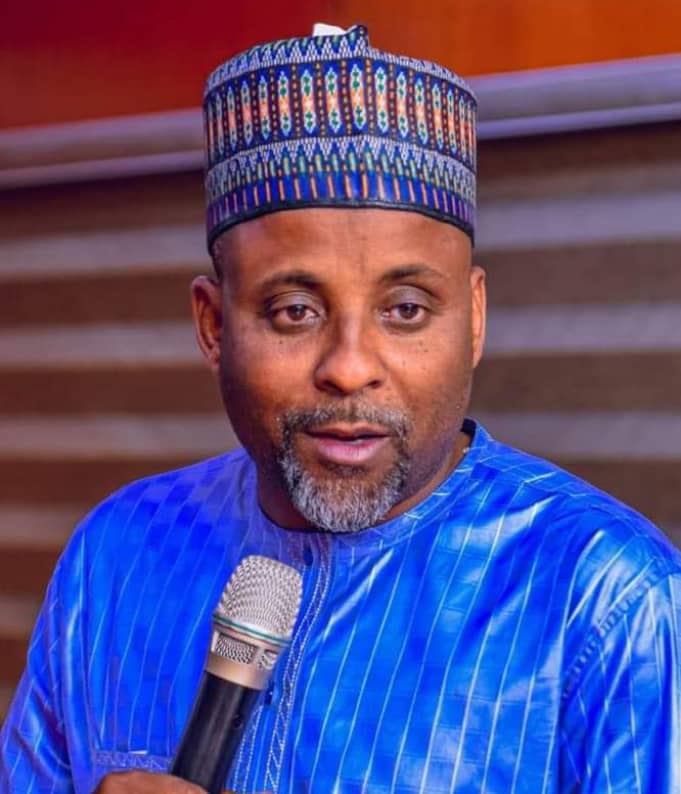THE peaceful transition of leadership in the Nigeria Union of Journalists (NUJ) is a significant milestone for journalism practice in Nigeria. Comrade Alhassan Yahaya emerged as National President of the NUJ at the eighth Triennial National Delegates Conference in Owerri, Imo State capital, through a landslide victory, amidst hopes that the new helmsman will strive to fix the array of challenges faced by journalists across the country. Indeed, he has not been elected at the best of moments for journalism practice in the country, so having chosen to do the job, he must get to work as fast as possible, with manifest results.
The new National Exco parades the likes of Dr. Abimbola Oyetunde as the first female Deputy President. This alone signals a progressive shift towards gender inclusion within the NUJ. While we commend this development and celebrate the democratic process that brought forth the new leadership, the challenges ahead demand immediate and decisive action.
The foremost task for Comrade Yahaya of the Gombe Media Corporation (GMC) and his team is to rally journalists on a shared vision of safeguarding fundamental human rights and bolstering the integrity of the profession. Journalists as the watchdog of society and the voice of the voiceless, remain under huge threat from the progressively shrinking civic space. These challenges hinder the ability of journalists to operate freely, contrary to the protections enshrined in the 1999 Constitution.
The new NUJ leadership should champion the enthronement of an environment where press freedom is not just a constitutional ideal but a lived experience.
There is need to improve the economic well-being of journalists in Nigeria given their dismal remuneration vis-a-vis their counterparts across Africa and in the Commonwealth. For instance, data indicates that while the average monthly salary for journalists in Nigeria hovers around $150, journalists in Ghana earn between $300 and $400 monthly. Meanwhile, their South African counterparts enjoy wages averaging $1,000 per month. Worse still, many are not in a payroll and have no job security.
Even among the Commonwealth, Nigerian journalists lag behind in this aspect. In countries like India, journalists could earn between $400 and $600 monthly, and in Australia, the figure is as high as $5,000.
The aforementioned economic disparities highlight the precarious situation of Nigerian journalists and the urgent need for an alteration of the narrative. Despite playing a crucial role in shaping public opinion and holding political office holders to account, Nigerian journalists are grossly underpaid or not paid at all. Some newspaper proprietors reportedly do journalists a favour by allowing them to operate under their platforms and using their identity cards as a tool for extortion and blackmail. The lot of journalists, especially in the private sector is indeed pathetic, hence the public perception of journalists is on a low ebb. For instance, how many journalists in the private sector are earning the New Minimum Wage?
It is imperative that the NUJ under Comrade Yahaya’s leadership prioritizes negotiation with newspaper proprietors for improved wages and welfare packages for journalists. Drawing from the remarkable strides of the late minister of Information, Mrs. Dora Akunyili, the union should advocate robustly for a dignified and sustainable wage regime for its members.
Another pressing issue is the infiltration of non-professionals into the journalism space. This deprecates the credibility of the profession and undermines public trust in the credentials of media practitioners. It is therefore incumbent on the NUJ to establish stringent standards for entry into the profession, ensuring that only qualified practitioners are recognized. Institutionalizing professional certifications and regulatory mechanisms will not only preserve the integrity of journalism but also enhance its societal impact. The only snag is that the law does not yet recognize journalism as a profession like law, medicine, accounting, engineering and others. Hence, the question ‘who is a journalist in the eyes of the law’ continues to agitate concerned minds. Unless this is done, we cannot continue to complain about quacks. In the afore-mentioned professions, the quacks or professionally uncertified are easily recognizable but to turn a journalist, you are only an ID card away.
All these challenges are not just a task but a solemn duty. The NUJ, under Comrade Yahaya, must lead from the front, ensuring that journalists in Nigeria are well remunerated, protected, respected and even rewarded.


